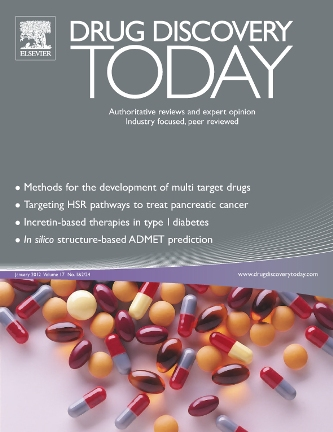乙酰胆碱酯酶抑制剂和再激活剂复合物的综合分析:对药物设计和解毒剂开发的影响。
IF 6.5
2区 医学
Q1 PHARMACOLOGY & PHARMACY
引用次数: 0
摘要
乙酰胆碱酯酶(AChE)的主要功能是调节最重要的神经递质之一乙酰胆碱的水平。这使得乙酰胆碱酯酶成为治疗神经退行性疾病和痴呆症(如阿尔茨海默病)以及中和天然毒素(如毒液肽)和化学战剂的理想分子靶点。AChE 抑制剂在延缓痴呆症进展方面的重要作用,以及再激活剂在治疗中毒者方面的作用,都反映在蛋白质数据库(Protein Data Bank)中的几种共晶体复合物中。在这项研究中,我们分析了所有保存的 AChE-小分子复合物,以深入了解化合物的结合情况,为今后设计治疗药物和新的解毒剂提供指导。本文章由计算机程序翻译,如有差异,请以英文原文为准。
Comprehensive analysis of acetylcholinesterase inhibitor and reactivator complexes: implications for drug design and antidote development
The main function of acetylcholinesterase (AChE) is to regulate the levels of one of the most important neurotransmitters: acetylcholine. This makes AChE an ideal molecular target for the treatment of neurodegenerative diseases and dementia (such as Alzheimer’s disease), as well as for the neutralisation of natural toxins (e.g., venom peptides) and chemical warfare agents. The significance of AChE inhibitors in slowing the progression of dementia, as well as the role of reactivators in treating poisoned individuals, is reflected in several co-crystallised complexes deposited in the Protein Data Bank. In this study, we analysed all deposited AChE–small-molecule complexes to gain insights into compound binding and to provide guidance for the future design of therapeutic drugs and new antidotes.
求助全文
通过发布文献求助,成功后即可免费获取论文全文。
去求助
来源期刊

Drug Discovery Today
医学-药学
CiteScore
14.80
自引率
2.70%
发文量
293
审稿时长
6 months
期刊介绍:
Drug Discovery Today delivers informed and highly current reviews for the discovery community. The magazine addresses not only the rapid scientific developments in drug discovery associated technologies but also the management, commercial and regulatory issues that increasingly play a part in how R&D is planned, structured and executed.
Features include comment by international experts, news and analysis of important developments, reviews of key scientific and strategic issues, overviews of recent progress in specific therapeutic areas and conference reports.
 求助内容:
求助内容: 应助结果提醒方式:
应助结果提醒方式:


